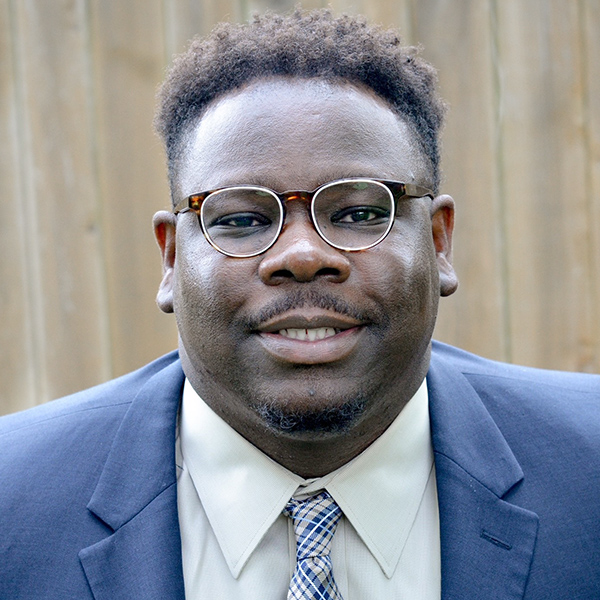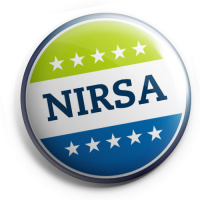Biography/Summary Resume
Oscee is currently an employee of Texas A&M University Rec Sports where he started back in 2010. He began his career as the Intramural Sports Coordinator and worked his way up to the assistant director level. His time there he supervised multiple graduate assistants and help run one of the largest Intramural Sports programs in the country. In 2018 he transitioned to the Facility Operations side of Rec Sports where he has served as the director. He managed the merging of different student staffs as well as the hiring of two new professional staff member in facility operations. He currently is responsible for the day-to-day efforts on the facility operations side which includes six and a future facility on the way. He has also served on multiple projects involving the construction of four new facilities for Rec Sports.
In his time as a NIRSA Member since 2008, he has served on various committees for the NIRSA National Championships Series. He also served on the Championship Series Executive Team for three years capping off as the chair from 2017-2018. He has served on staff at all the various National Championships in some capacity. He has been awarded multiple NIRSA Service Awards for his dedication to NIRSA. He has presented on various topics and on the local, regional, and national level. He currently serves as the Texas State Rep.
Oscee enjoys all things Houston and is the proud dog dad of a mini chocolate labradoodle named Shuri. He a high school football official and statistician for Texas A&M men’s and women’s basketball and football. He enjoys having a good time at conferences and most times you can find him laughing or joking while there. He loves to chat, so if you see him, do not be afraid to stop and say hello.
What do you see as opportunities in collegiate recreation and our Association? How would you collaborate with the Member Network team to address these issues?
Within collegiate recreation, I see opportunities for enhancement. Prior to the pandemic, a lot of us rested on the “way we do things has always worked.” During and after the pandemic we found out that not all our ways worked. This opportunity allowed us all to reinvent what we do by looking internally at our everyday processes and how we delivered recreation to everyone. While it was difficult and remains difficult, I believe we were forced to create new ways to engage and offer services to our patrons. Universities realized the power of virtual activities, non-traditional memberships, and collaborations with multiple different entities they may have never thought about in the past. Professional staff at all levels were allowed to try new things and see what delivered results. Continuing to foster this type of climate and atmosphere would not only make each institution better, but it would also help tap into those creative and innovative parts of us all that we may not get to use all the time. The Member Network would be able to assist in streamlining these new ways of doing things as well as promoting those people and institutions who are coming up with them. There is always a need for someone or some group to gather information and serve as the entity who keeps it up to date as well as helps distribute it to the masses. Through the Member Network, it can work with their respective state representatives to obtain and share information from the other regions.
As far as our association, there seems to be a trend of people leaving the field to pursue other options. People who would have been pegged as future lifers are looking elsewhere for fulfillment or opportunity. Now this is not something we can control as whole because people are going to make the best decision possible for themselves, however I believe as the Member Network we need to talk to these individuals that feel they may not have a place within the Association or that their needs are not being met. We should work to provide new opportunities and experiences outside of the traditional norms at conference. The focus seems to have steered unequally towards student development and while they are important and necessary, the groups that bridges the students to the seasoned NIRSA Members need to be heard. Leadership opportunities would help but I would want us to help prepare them for future roles within their universities or how to move successfully up the ladder and not feel stuck. We would need to develop and attract sessions, presentations, and/or speakers that relate to them and offer beneficial development to keep them around.
In describing your contributions to NIRSA, identify how your involvement and experiences meet the position criteria and qualify you to serve NISRA in this role.
I have been fortunate to serve in a few different capacities within the Association. One of the most beneficial experiences I had was serving on the NIRSA Championship Series Executive Team for three years. Through this I was able to learn and develop strategies of getting a collective group of people to move and think as one. I had to learn how to listen to the needs and ideas of many and address them in a productive way that help them be heard. Being that it was a multi-year commit, it provided me the opportunity to build on previous leadership and continue to move the needle forward for those involved. It allowed me to meet and work alongside a lot of NIRSA leaders such as Pam Watts, Shark Williams, Stephanie McAlpine, and a host of others. These meetings and gatherings allowed me to communicate their messages to my team and get our groups to align as well as it allowed me to deliver our thoughts and concerns in an effective manner.
My time working various tournaments or working on conference committees taught me the value of networking and making everyone feel a part of the team. These types of events are only successful due to the people who work and contribute to them. You must make sure everyone understands the goals at hand and while their way may not be the way we approach the goal, their voices and opinions are equally important. In addition to those takeaways, being involved with these opportunities educated me on the importance of utilizing people’s strengths to help foster success. With so many people wanting to volunteer or being involved, you must make sure they are properly utilized and maximized. On the Member Network, it would be no different. I would have to work within my region to make sure the members working on regional committees are put in the best position possible and are able to fully utilize their skill sets. Whether it be in selecting the right person to chair a conference or even selecting a destination to host a tournament. I must be able to make well thought out decisions.
Please share your ideas for engaging volunteers and identifying leaders in your region.
Some ideas for engaging volunteers would be intentionally targeting individuals who have demonstrated at one point or a time an ability to be successful in these roles. Often it is a matter of right time, right moment for people to volunteer so I would want to make sure I do my due diligence in approaching these people. On the flip side, I think we also owe it to ourselves to identify future leaders and individuals with potential in our region. This means utilizing your network contacts to get them to submit names or asking new members to apply for certain roles which would allow them to get their initial experience within NIRSA leadership. As someone who also understands the importance of diversity and representation, I believe its also imperative to seek out those individuals who may not have traditionally been put in these roles or may come from an institution not necessarily accustomed to getting involved and invite them to be a part of these experiences.
Since a lot of our leadership roles involve multiple years, we need to develop something in line with what we tried to do with the Championship Series and develop an Academy of sorts to educate and prepare people to serve in these roles. Part of the issue could be is people hear these roles and positions but do not know exactly what they would be doing or how they can affect their region. The purpose of this would give specific instances as well as allow them to engage in similar type activities that you would experience serving in one of these roles.



